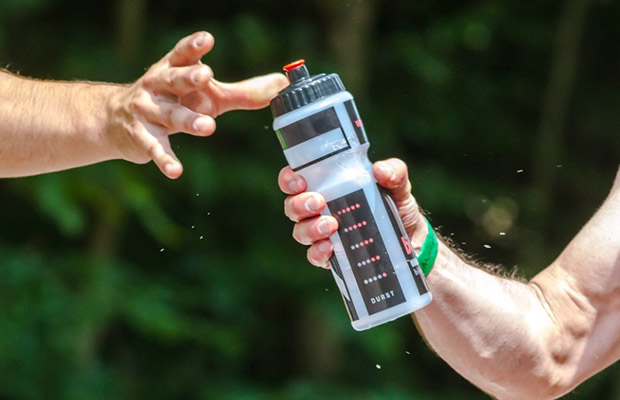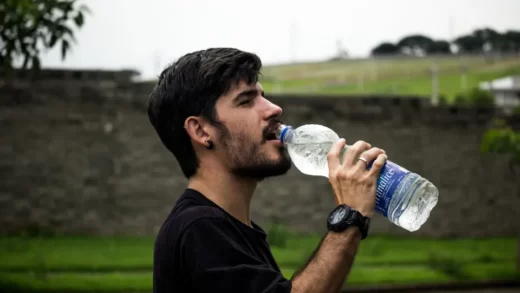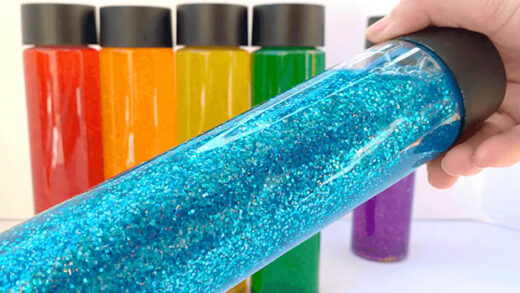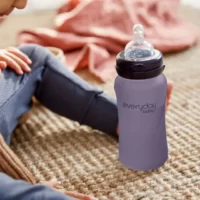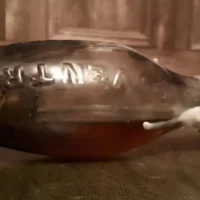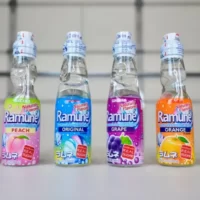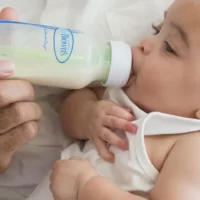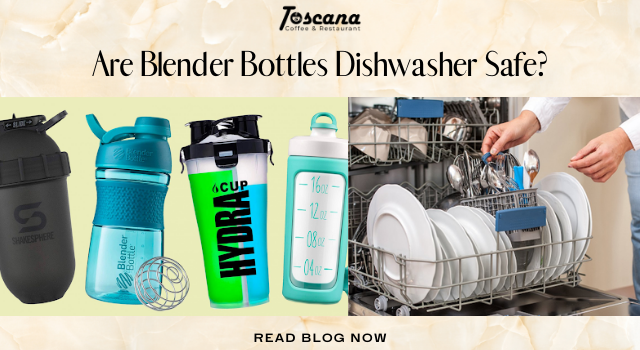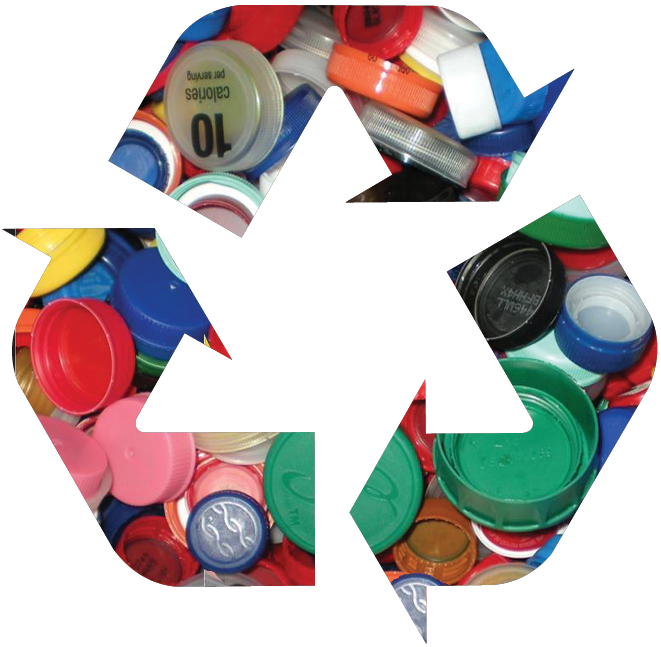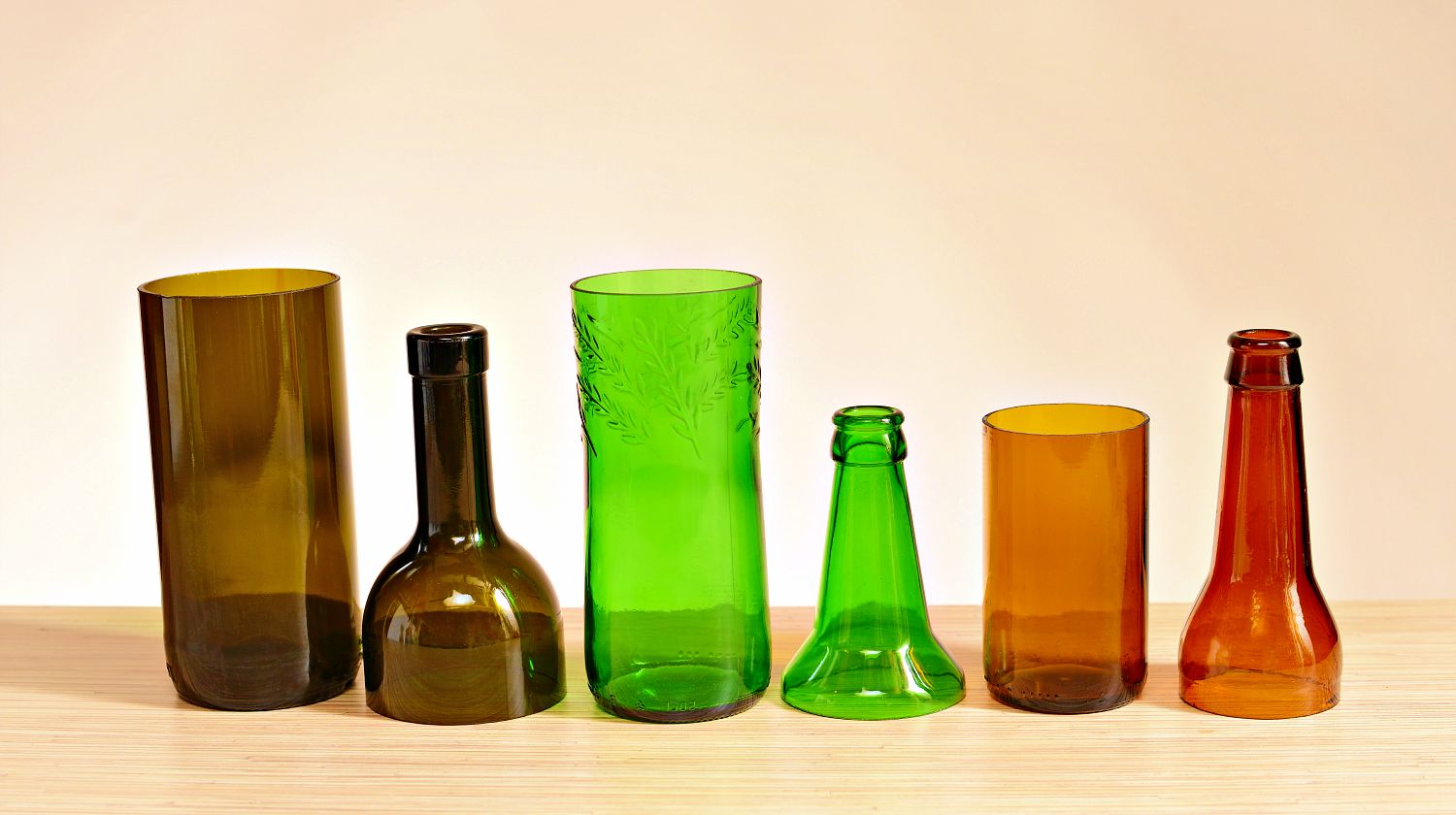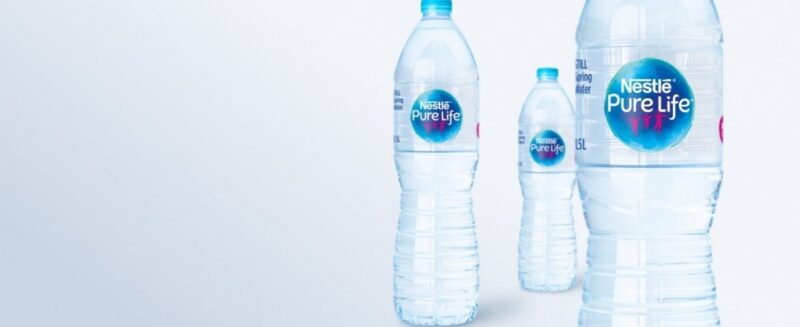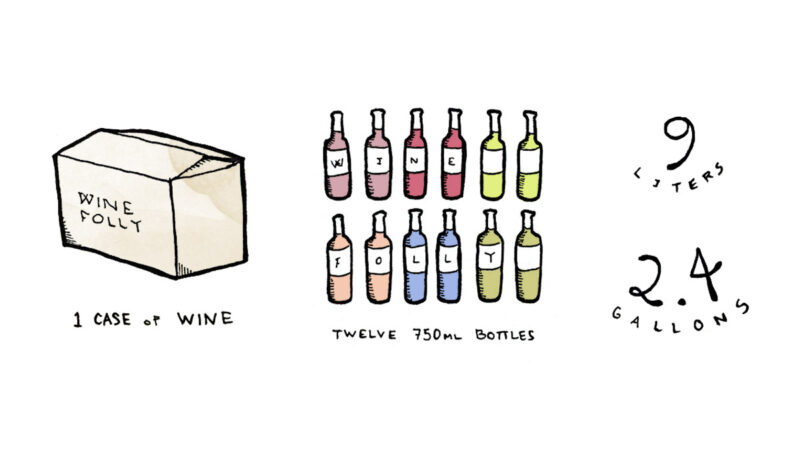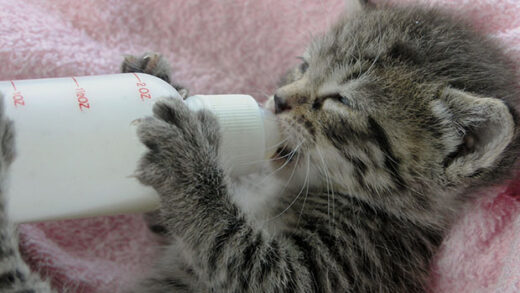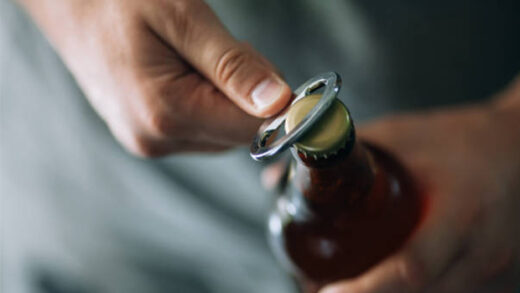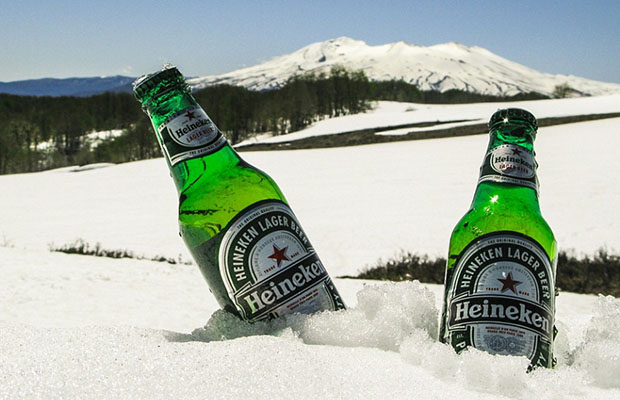What comes next now that your baby is content, well-fed, and thriving? When they can go hands-free at mealtimes and let their kids handle the task, parents who are eager to witness another exciting milestone might wonder.
When do babies hold their own bottle? Babies can hold objects (even one in each hand!) when they are 8 or 9 months old, which is closer to the average.) and guide them where they want them to go (like to their mouths). Accordingly, a range of 6 to 10 months is completely normal.
What you need to know about a frequently disregarded developmental stage in your child’s first year is provided below.
Table of Contents
Does Baby Have To Hold Their Own Bottle?
When your baby holds their own bottle, they demonstrate important skills — including “crossing the midline,” or reaching from one side of the body to the other with a hand or foot.
But it’s okay if some infants especially breastfed infants, never do this by holding a bottle. There are other ways to learn and use this skill.
Around the age of 1, a breastfed infant, for instance, might move from breastfeeding to independently drinking from a cup, which requires the same skill.
This does not imply that they were lacking in this ability before. Other activities involve crossing the midline, such as bringing a toy to the mouth or picking up something with the dominant hand that is on the non-dominant side of the body.
When Do Babies Start Hold Their Own Bottles?
Don’t be shocked if your baby deviates from the norm; she may be capable of handling it at around 6 months and possibly later up to 10 months. There is no universal recommendation for when babies should feed themselves because every baby develops on a different timetable.
Your child might even decide not to hold the bottle at all; this could be because she prefers to have her meals given to her by her caregivers or simply because she hasn’t had a chance to practice holding it.
Read More: How To Get A Breastfed Baby Take To A Bottle?
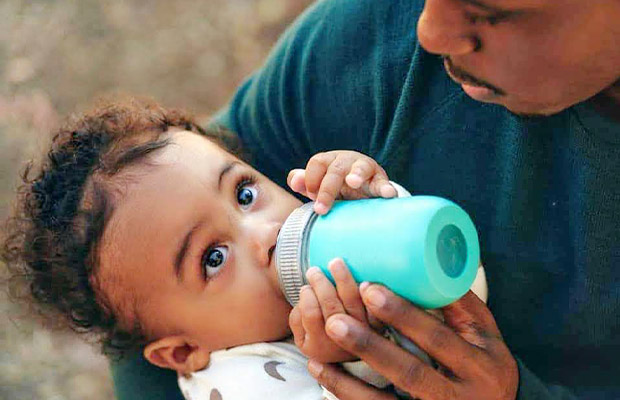
Signs That Baby Is Ready To Hold Their Own Bottle
Babies develop their strength and coordination on their own timetables, which are needed for holding a bottle. Some signs your baby may have the skills necessary to hold their own bottle include:
- maintaining balance while playing with a toy while sitting up without assistance.
- picking up items while seated and reaching for them.
- attempting to grab the bottle while being fed and displaying interest in it.
- when given food, taking it in their hand and placing it in their mouth.
By giving your infant lots of tummy time, you can aid in the development of the core strength and coordination needed for self-feeding. Put a toy out of their reach during tummy time and encourage them to grab it.
Tips For Encouraging Your Baby To Hold Their Own Bottle
Baby does as they please when and where they please, as most parents are aware.
But if you’re looking to gently encourage your little one to give mama a hand (literally), you can try:
- demonstrating the hand-to-mouth motion by taking baby-safe items (like teethers) and bringing them from floor level to baby’s mouth
- purchasing easy-grasp bottles or sippy cups with handles (baby will need to use two hands to hold the bottle, at least initially)
- putting their hands on the bottle and placing yours on top — and then guiding the bottle to their mouth
- spending lots of time building the baby’s strength, such as through tummy time
As feeding oneself should be done in a more upright position, your baby should be able to sit up independently. They can develop the core strength necessary for this skill through tummy time, and you can encourage them by sitting them up in your lap.
But also, for the reasons we’ve already mentioned, carefully consider whether you want baby to hold their own bottle.
Another way to promote independence and teach skills to your baby is to concentrate more on letting them feed themselves and teaching them how to hold and drink from their cup (regular or sippy) in the high chair while you continue to give the bottle.
Important Things When You Relinquish Control Of The Bottle
When your baby can feed themselves, it is without a doubt a glorious moment. You shouldn’t, however, trust them to make the best decisions all the time because they are still too young and inexperienced to do so.
Three precautions to keep in mind:
Keep in mind that the bottle is only for feeding, not for solace or to get to sleep. It might not be a good idea to give your baby a milk bottle (or even milk in a sippy cup) to hold while you go about your daily activities.
Stay away from putting a bottle in your child’s crib. While they may be content to drink themselves to sleep, it is not a good idea to enter a dream state while holding a bottle in one’s mouth. Milk can gather in the area around a child’s teeth, causing both short-term choking and long-term tooth decay.
Instead, feed your baby just before putting them to bed (or let them do it while you keep an eye on them), and then gently wipe their gums and teeth to remove any milk. Put a pacifier in if you’re really having trouble getting them to sleep without a nipple in their mouth.
Avoid the urge to use anything to prop the bottle in your baby’s mouth if they are still too young to hold the bottle themselves. Even though we appreciate having two hands, it’s never a good idea to do this while the baby is unattended. They are more likely to overeat as a result, in addition to choking.
The risk of ear infections may also be increased by leaving your baby in their crib with a bottle and propping the bottle up, particularly if your baby is lying down.
Read More: How Often To Replace Baby’s Feeding Bottle?
Does It Matter If Baby Doesn’t Hold A Bottle?
Even though many of his peers are already doing it, your baby may not be interested in trying to hold the bottle at this age. When my baby didn’t reach a milestone by the mystical date that was mentioned in baby books, I can still recall worrying about it with my first child.
My child didn’t enjoy holding bottles in particular. He simply wanted me to cuddle him and hold the bottle so he could unwind completely. Although I was happy to do it, I began to feel a little uneasy when other mothers would remark that my child wasn’t yet holding his own bottle.
The fact that all of his other developmental milestones appeared to be being met was the only thing keeping me from freaking out about it. The speed at which babies achieve milestones has nothing to do with how smart they are or how successful they will be in the future, so I quickly learned to stop letting other moms’ comparisons bother me.
It turns out that all of my early worries was unnecessary. He eventually expressed an interest in holding his bottle, and I began to long for the times when he let me handle everything.
Is Bottle Propping Permitted?
No, bottle propping—holding the baby’s bottle while it is propped up against something and neither of you is holding it—can be harmful.
In the event that your hands are full or you’re trying to feed another child at the same time, you might be tempted to place a bottle on top of your baby’s head. When drinking from a bottle that is propped up, however, your baby could overindulge or even choke.
Additionally, your baby’s risk of ear infections can rise when using a bottle with a prop. During feedings, if your baby is lying down, the liquid may flow from their mouth into their eustachian tubes, where it may linger and result in an infection.
Giving your baby a bottle to hold and drink from as they drift off to sleep is something else to avoid. Some newborns begin to use their bottles as comfort items, which makes it very challenging to wean them from their use as they get older.
Additionally, if your infant falls asleep with a bottle in their mouth, the formula or breast milk may pool around their teeth and cause tooth decay. Brush your baby’s teeth after feeding them if a bottle is a part of their bedtime routine, and then put them to sleep.
Final Words
Your child is starting to eat on their own, so raise both hands in the air as if you couldn’t care less! Of course, you’ll still want to feed your baby the majority of the time for safety, cuddling, and bonding reasons.
In addition, learning to eat independently is a skill in and of itself that is far more crucial than learning to hold a bottle in particular, especially if your child is getting close to the one-year mark.
But if your child shows this ability between the ages of 6 and 10 months, feel free to give them a bottle occasionally.
Your baby will probably find it difficult to keep the object in their mouth for more than a few seconds once they start attempting to do it. That’s normal, and you can assist them by gently helping it return to the mouth while ensuring that their hands are still on the bottle’s sides.

